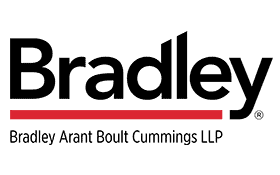
Washington’s War on Drug Cartels: What Your Bank Needs to Know
The new administration’s orders create heightened risk for Bank Secrecy Act and anti-money laundering scrutiny.
Brought to you by Bradley

On his first day in office, President Donald Trump signed an executive order enabling the State Department to designate drug cartels as Foreign Terrorist Organizations (FTOs). The State Department then formally designated eight cartels as FTOs. Since that time, the Treasury Department’s Financial Crimes Enforcement Network (FinCEN) has led a whole-of-government charge to combat cartel financial activity and restrict access to the U.S. financial system. In recent months, FinCEN has issued unprecedented orders and informative alerts designed to help banks recognize, report and combat these evolving threats. Financial institutions, particularly those with exposure to the Mexican or Southwest border markets, should be prepared for heightened Bank Secrecy Act/anti-money laundering (AML) regulatory scrutiny.
The FTO designations prohibit banks and other financial services firms from conducting business with individuals and entities they suspect are connected to the cartels and mandates the immediate blocking or freezing of assets linked to them. The FTO designations also significantly heighten civil litigation risk, as victims of cartel violence could theoretically bring claims against connected banks pursuant to the Anti-Terrorism Act and related statutes. Meanwhile, the AML Whistleblower Improvement Act increased awards for those who successfully report violations of the BSA and economic sanctions to between 10% and 30% of monetary sanctions in excess of $1 million. These developments will necessarily require decision-makers to take stock of existing BSA/AML programs, including know-your-customer/customer identification programs, enhanced due diligence procedures, review of correspondent banking relationships and scrutiny of cross-border payment flows.
Here are a few considerations.
1. Conduct a Thorough Risk Assessment
Financial institutions should conduct a thorough risk assessment to understand how their existing customer, product and geographic risk maps onto the Trump administration’s focus on cartel activity and the resulting expectations of prudential examiners. Regulators always expect a “risk-based” approach to BSA/AML and financial crime compliance. If you are not regularly examining your risk exposure to ever-changing threats, then you will not be able to convince the government of the adequacy of your BSA/AML program.
2. Update Transaction Monitoring and Customer Screening Programs
Given the FTO designations and current enforcement spotlight on cartels, financial services firms must review and update customer screening and transaction monitoring programs. FinCEN has issued a series of alerts outlining cartel-linked money laundering schemes and typologies, including trade-based money laundering. Banks need to update transaction monitoring rules and thresholds to ensure they are flagging high-risk transactions. Institutions must also ensure that relationships with a higher risk of potential cartel exposure receive enhanced and ongoing due diligence.
3. Audit Correspondent Banking Relationships
Earlier this summer, FinCEN issued its first-ever orders under Section 2313a of the Fentanyl Sanctions Act, identifying three Mexico-based financial institutions tied to key money laundering activities. By October 20, 2025, U.S.-based financial institutions are expected to (1) implement procedures to ensure compliance with the terms of the orders; and (2) exercise reasonable due diligence to prevent engaging in transmittals of funds involving the identified banks. Banks should probe their potential exposure to the three identified institutions — CIBanco, Intercam, and Vector — and block any transactions to or from these entities.
4. Identify and Report Suspicious Transactions
As noted above, FinCEN has issued several alerts as a roadmap to navigate industries or activities indicative of cartel-related activity. In March, FinCEN published an alert on bulk cash smuggling and repatriation schemes, explaining how cartels funnel cash into the United States from seemingly legitimate businesses. In another, FinCEN explained how cartels steal billions in crude oil from Pemex, Mexico’s state-owned oil company, and funnel it into the U.S. energy market. Most recently, FinCEN issued an advisory on the link between Chinese money laundering networks and Mexico-based drug cartels.
Financial institutions must adequately resource their compliance programs and train both first- and second-line staff to identify red flags indicative of cartel financial activity. The cross-border activity flagged by FinCEN demonstrates the need to pay attention to patterns and behavior on all cross-border transactions, not just those involving a Mexico-based entity. If identified, banks need to ensure their investigation and Suspicious Activity Report (SAR) programs accurately and efficiently report such transactions to FinCEN and/or the Office of Foreign Assets Control.




